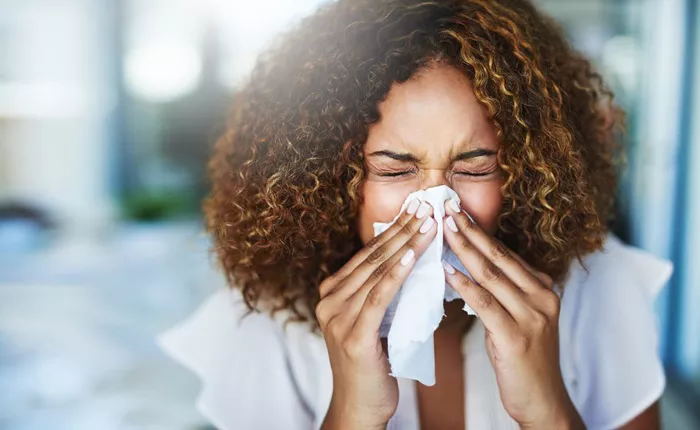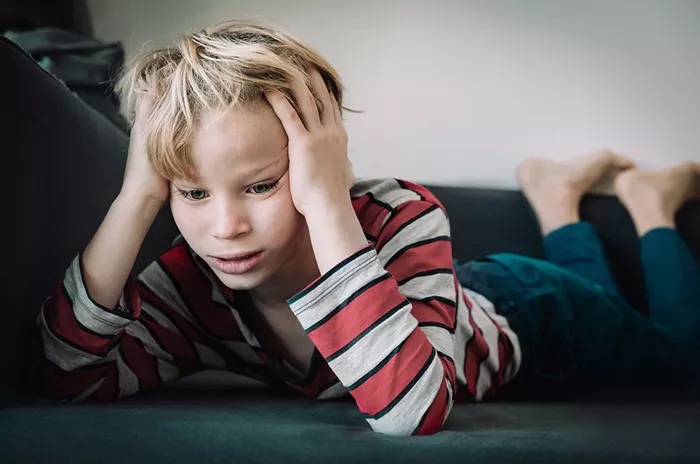Sneezing is a common reflex action that expels irritants from the nasal passages. However, when sneezing becomes severe and frequent, it can be both disruptive and indicative of underlying health issues. Understanding the causes of severe sneezing is essential for effective management and treatment. This article delves into the various factors that can lead to severe sneezing, exploring environmental triggers, allergic reactions, infections, and other potential causes in detail.
Understanding Sneezing: The Basics
Sneezing, or sternutation, is a protective mechanism designed to clear the nasal passages of irritants. It involves a coordinated effort between the respiratory and nervous systems. When irritants such as dust, pollen, or microorganisms enter the nose, they stimulate the nasal mucosa, sending signals to the brain’s sneeze center. The brain then orchestrates a series of muscle contractions, resulting in a forceful expulsion of air through the nose and mouth.
While occasional sneezing is normal, severe and persistent sneezing episodes can significantly affect quality of life. Identifying the root causes of severe sneezing is crucial for effective management and treatment.
1. Environmental Triggers
Environmental factors are among the most common causes of severe sneezing. These triggers include airborne particles, pollutants, and other irritants that can provoke the nasal mucosa.
Pollen: Seasonal allergies, also known as hay fever or allergic rhinitis, are often triggered by pollen from trees, grasses, and weeds. Pollen particles can easily enter the nasal passages, causing inflammation and leading to frequent sneezing, nasal congestion, and itching.
Dust and Dust Mites: Dust mites are microscopic organisms that thrive in household dust. Their excrement and body fragments can become airborne and inhaled, triggering allergic reactions and severe sneezing in sensitive individuals.
Animal Dander: Proteins found in the skin flakes, saliva, and urine of animals can become airborne and act as allergens. Pet owners or individuals exposed to animals may experience severe sneezing as a result.
Mold: Mold spores are another common allergen. Mold can grow in damp environments, such as bathrooms, basements, and kitchens. Inhaling mold spores can lead to respiratory symptoms, including severe sneezing.
Air Pollutants: Environmental pollutants, such as smoke, chemical fumes, and strong odors, can irritate the nasal passages and trigger sneezing. Individuals living in urban areas or working in environments with poor air quality may be more susceptible to these triggers.
2. Allergic Reactions
Allergic reactions occur when the immune system mistakenly identifies harmless substances as threats and mounts a defensive response. Severe sneezing is a common symptom of allergic reactions.
Seasonal Allergies: As mentioned earlier, seasonal allergies caused by pollen can lead to severe sneezing. These allergies tend to be more prevalent during specific times of the year when pollen counts are high.
Perennial Allergies: Unlike seasonal allergies, perennial allergies persist year-round and are often triggered by indoor allergens such as dust mites, pet dander, and mold.
Food Allergies: While less common, food allergies can also cause sneezing. Consuming certain foods can trigger an immune response that leads to respiratory symptoms, including sneezing, nasal congestion, and itching.
Drug Allergies: Some medications can trigger allergic reactions, leading to symptoms such as sneezing, hives, and swelling. Common culprits include antibiotics, nonsteroidal anti-inflammatory drugs (NSAIDs), and certain blood pressure medications.
3. Infections
Infections, particularly those affecting the upper respiratory tract, can cause severe sneezing. Viral, bacterial, and fungal infections can all lead to inflammation and irritation of the nasal passages.
Common Cold: The common cold is a viral infection that affects the upper respiratory tract. Rhinoviruses are the most frequent cause of colds, leading to symptoms such as sneezing, runny nose, sore throat, and coughing.
Influenza: Influenza, or the flu, is a more severe viral infection that can cause intense respiratory symptoms, including severe sneezing, fever, body aches, and fatigue.
Sinus Infections: Sinus infections, or sinusitis, occur when the sinuses become inflamed and infected. Bacterial or viral infections can lead to symptoms such as severe sneezing, nasal congestion, facial pain, and pressure.
Fungal Infections: Fungal infections of the sinuses, though less common, can also cause severe sneezing. Individuals with weakened immune systems are more susceptible to these infections.
4. Non-Allergic Rhinitis
Non-allergic rhinitis is characterized by chronic sneezing and nasal congestion not caused by allergies or infections. This condition can be triggered by various factors, including:
Irritants: Exposure to irritants such as strong odors, perfumes, smoke, and pollution can lead to non-allergic rhinitis, causing severe sneezing and nasal symptoms.
Temperature Changes: Sudden changes in temperature or humidity can trigger non-allergic rhinitis. Moving from a warm environment to a cold one, or vice versa, can provoke symptoms.
Hormonal Changes: Hormonal fluctuations, particularly during pregnancy, menstruation, or menopause, can lead to non-allergic rhinitis and severe sneezing.
Medications: Certain medications, such as nasal decongestant sprays, when used excessively, can cause rebound congestion and non-allergic rhinitis, resulting in frequent sneezing.
5. Other Potential Causes
Several other factors can contribute to severe sneezing, some of which may be less obvious but equally important to consider.
Occupational Exposure: Individuals working in environments with high levels of dust, chemicals, or other irritants may experience severe sneezing as an occupational hazard. This is particularly common in industries such as construction, manufacturing, and agriculture.
Gustatory Rhinitis: Gustatory rhinitis is a condition where eating certain foods, particularly spicy or hot foods, triggers sneezing. This is thought to be due to the stimulation of the trigeminal nerve in the nasal passages.
Physical Activity: Some individuals experience sneezing during or after intense physical activity. This condition, known as exercise-induced rhinitis, is believed to be related to changes in airflow and temperature in the nasal passages during exercise.
Emotional Triggers: Emotions such as stress, anxiety, or excitement can lead to physiological changes that trigger sneezing in some individuals. This phenomenon is known as psychogenic sneezing.
Nasal Polyps: Nasal polyps are noncancerous growths in the nasal passages or sinuses that can cause chronic nasal congestion and sneezing. These growths can obstruct airflow and lead to persistent symptoms.
Diagnosis and Treatment
Diagnosing the underlying cause of severe sneezing involves a comprehensive evaluation by a healthcare professional. This may include a detailed medical history, physical examination, and diagnostic tests such as allergy testing, nasal endoscopy, or imaging studies.
Treatment for severe sneezing depends on the underlying cause:
Allergic Rhinitis: Management may include avoiding allergens, using antihistamines, nasal corticosteroids, and allergy immunotherapy.
Infections: Viral infections typically resolve on their own, while bacterial infections may require antibiotics. Symptomatic relief can be achieved with decongestants and saline nasal sprays.
Non-Allergic Rhinitis: Treatment may involve avoiding triggers, using nasal corticosteroids, antihistamines, and saline nasal irrigation.
Other Causes: Addressing specific triggers, such as occupational exposure, dietary changes, or managing stress, can help alleviate symptoms.
Conclusion
Severe sneezing can significantly impact an individual’s quality of life, making it essential to identify and address the underlying causes. Whether due to environmental triggers, allergic reactions, infections, or other factors, understanding the root cause is crucial for effective management and treatment. By recognizing the diverse causes of severe sneezing and seeking appropriate medical evaluation, individuals can achieve better symptom control and improve their overall well-being.
[inline_related_posts title=”You Might Be Interested In” title_align=”left” style=”list” number=”6″ align=”none” ids=”9720,9498,9717″ by=”categories” orderby=”rand” order=”DESC” hide_thumb=”no” thumb_right=”no” views=”no” date=”yes” grid_columns=”2″ post_type=”” tax=””]
































